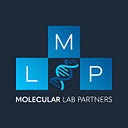CLIA and COLA
There are two important processes to go through when starting in the laboratory business: CLIA
and COLA applications. These certificates will ensure that your company is compliant with all
the regulations set forth by governing bodies, which includes knowing what they each entail, as
well as when/how often it’s appropriate for them both be submitted (and if there’s anything in
between). Here we‘’ll take a look at some things worth noting about these various licenses.
CLIA
The Clinical Laboratory Improvement Amendments (CLIA) regulate laboratory testing and
require clinical laboratories to be certified by the Center for Medicare and Medicaid Services
(CMS) before they can accept human samples for diagnostic testing. Laboratories can obtain
multiple types of CLIA certificates, based on the kinds of diagnostic tests they conduct.
COLA
The Commission on Office Laboratory Accreditation (COLA) is a third-party accreditation
organization that ensures labs comply with federal regulations, including those set by CLIA.
COLA provides the clinical laboratory with a program of education, consultation, and
accreditation.
CLIA was created to protect patients, but it’s also important for laboratory owners. CLIA and
COLA applications ensure that you’re following all the rules, which can prevent any costly
issues or lab shut downs in the future.
CLIA and COLA accreditations show patients and other professionals that your lab is
trustworthy and compliant.
The CLIA and COLA Application Processes
When applying for a CLIA or COLA, it’s important to understand the requirements. Applicants
need information about their laboratory and its management practices, as well as quality
assurance procedures and staff.
This is a basic outline of the information needed:
• Information about the laboratory’s administration, staffing, location, and equipment
• A copy of the business’ certificate of incorporation
• Proof of compliance with state and federal regulations
• Laboratory’s quality assurance documents
• Detailed list of testing procedures
• A list of all tests being performed, including test names, methods, and reference ranges
• Application fees
Molecular Lab Partners (MLP) makes the certification process easier and less stressful. From
application to approval, we’ll be there guiding you through the CLIA and COLA process.
As a full-service lab consulting and development firm, we have helped setup labs across the
country. Our team will take the guesswork out of setting up or expanding your lab so you can
focus on your patients.
